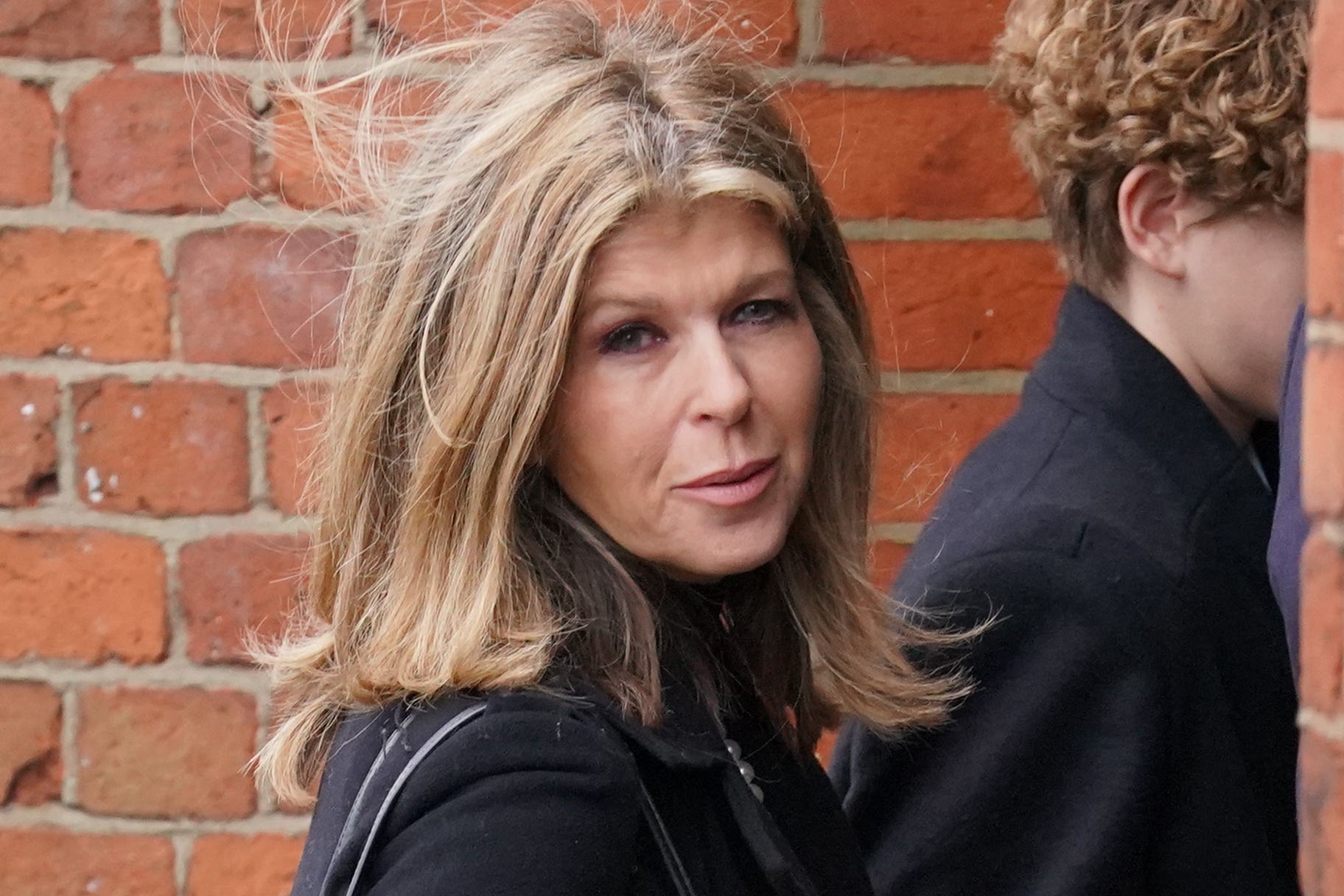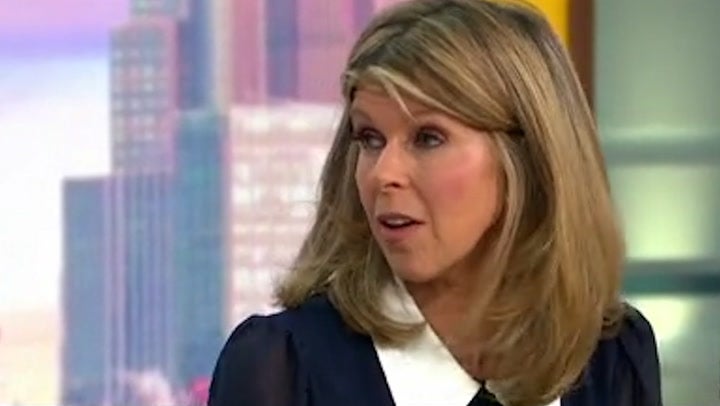Your support helps us to tell the story
From reproductive rights to climate change to Big Tech, The Independent is on the ground when the story is developing. Whether it's investigating the financials of Elon Musk's pro-Trump PAC or producing our latest documentary, 'The A Word', which shines a light on the American women fighting for reproductive rights, we know how important it is to parse out the facts from the messaging.
At such a critical moment in US history, we need reporters on the ground. Your donation allows us to keep sending journalists to speak to both sides of the story.
The Independent is trusted by Americans across the entire political spectrum. And unlike many other quality news outlets, we choose not to lock Americans out of our reporting and analysis with paywalls. We believe quality journalism should be available to everyone, paid for by those who can afford it.
Your support makes all the difference.Kate Garraway has made an emotional return to the Good Morning Britain studio following the funeral of her husband, Derek Draper.
The GMB host, who had taken a break from the show since 2014, discussed the reasons behind her decision to return to the show, before telling her co-hosts “we have to pick ourselves up and go on”.
During an emotional return to the breakfast show, which she has worked on since 2014, Garraway told her co-hosts that it was “odd” to be back in the ITV studio but “life must start again”.
Draper, a former political lobbyist and psychotherapist, died aged 56 on January 3 following four years of severe illness after suffering Covid-19 complications.

Garraway, 56, thanked viewers for their “incredible” support and said while it was “lovely” to be back, she still felt a little “wobbly”.
So, when is it the right time to return to work after a bereavement, and what can people do to support themselves and each other? Here, grief experts share their suggestions…
When is the right time to return to work after bereavement?
Grief is a very individual thing and there are no set timelines of how it will affect people, or the ‘right’ way to cope.
“For this reason, it is impossible to say definitively how someone returning to work after a bereavement feels,” says Nicola Creaser, a bereavement counsellor at the end-of-life charity Marie Curie. “What is important is to recognise there is no one-size-fits-all-approach, and the best way to find out how someone is feeling is to ask them directly, and not to assume you already know.
“I have seen discussions in the media and on social media questioning whether it is too soon for Kate Garraway to be going back to work. What I’d say is that coping mechanisms are as personal as grief is. And for many, returning to normal, which can include going back to work, can be a relief.
“When you have been newly bereaved, and particularly if you have been a carer, it is very common to feel like you do not know how to be you anymore, or what is expected of you. At work, you know your schedules and you know what is expected of you. That can be really helpful for some bereaved people.”
Andy Langford, clinical director for Cruse Bereavement, says our experiences of grief are often based on unique contextual matters, and what our relationship was and continues to be like with the person we have lost.
Importantly, there may be other things that need to be considered to. As Langford adds: “A lot of us also have economic pressures, childcare, and need to be in work. It’s not unusual for people to experience this, but their emotional needs can suffer.”

Are there longer term emotions to consider?
If a bereaved person throws themselves back into work as a coping mechanism to help protect themselves – or simply because they need to – they may find emotions coming to the surface further down the line.
“The reality of the loss, typically but not for everyone, may begin to impact them further down the line once the practical tasks that need to be done after someone has died have been completed,” Creaser added.
“Often around this time, support networks begin to thin out, as people assume it gets better with time. This is often not the case for many bereaved people. This could coincide with colleagues and managers starting to think, ‘Oh, they’re fine now and doing well’. It’s common that, around this time, the person may start to have emotional wobbles at work, and this might be when they need some time off.”

What can other people do to help?
With the right support and open conversations, a lot of people can continue to work. It’s about being compassionate and aware of what the person needs in that moment.
Jane Murray, also a bereavement counsellor at Marie Curie, says: “Returning to work following a bereavement is often an anxious time for bereaved people. This is due to a mix of anticipating how colleagues might be with them, not wanting to get upset in the workplace and not wanting their emotions to affect their work or be seen to affect their work.
“If you’re a manager, you might ask to meet with your bereaved colleague in a less formal setting before returning to the office. This can be a good ice-breaker, but it may also allow them to tell you or your team what they do or don’t want people to say when they’re back in the office.
“As a colleague or a manager, watch carefully for signs of the person withdrawing and not joining in with conversations. If they are, then the manager should offer support.
“Be ready to take the bereaved person’s lead,” Murray adds. “If they want you to talk to them about their feelings, then they may start the conversation themselves. You should also be aware that they may become upset or need a moment alone, and that’s ok.”
How can you support yourself when returning to work?
Langford says the first thing is to become aware of what your workplace has as its bereavement policy.
“You would be surprised to know that some companies have nothing like it in place. But you need to get this information to be prepared to have an open conversation about what you will need now and in the future,” he says. “It can be your line manager or HR. Be prepared to say that you aren’t sure about what you need at the moment too.
“It would also be helpful for you and your employer to talk about what you want colleagues to be told, how, and when. The employer should be asking you this, so you can go back to work, knowing what you are walking into,” Langford adds.
“Be gracious with yourself and take your time. Your cognitive functions and executive thinking can be affected by grief, particularly how you process visual and audible information. It’s important to speak to your employer about this and what the expectations are.”

Join our commenting forum
Join thought-provoking conversations, follow other Independent readers and see their replies
Comments